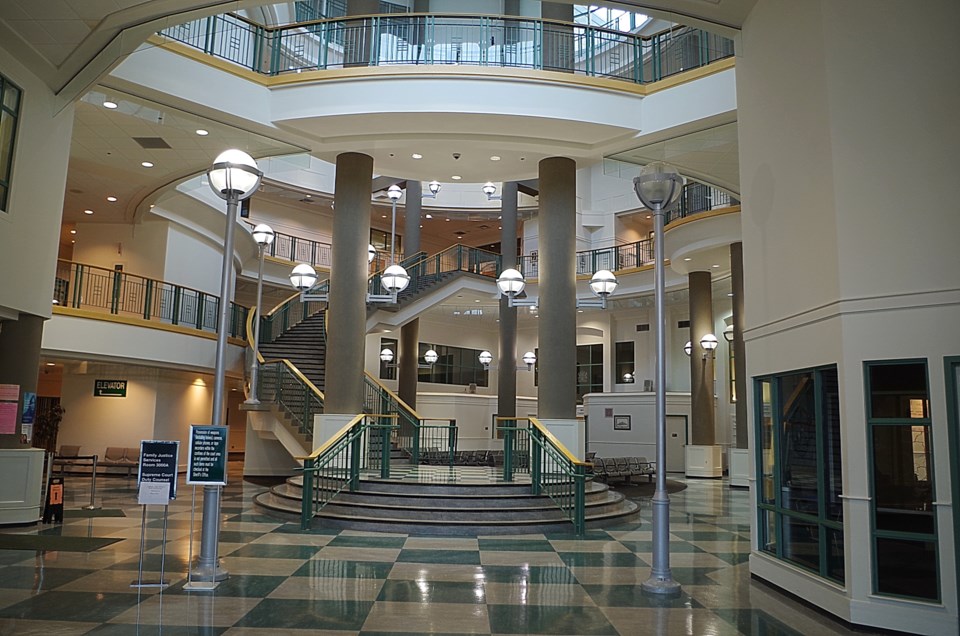The City of Prince George continues to assert there are enough daytime facilities and suitable housing available to the occupants of the Lower Patricia encampment, known commonly as Moccasin Flats.
The city has filed further submissions regarding daytime facilities as part of its B.C. Supreme Court petition to evict the remaining residents and close down the encampment.
Lack of availability of suitable housing and daytime facilities was a deciding factor in Chief Justice Hinkson’s decision to allow the encampment to remain open back in October 2021, when the city first petitioned the court.
After a three-day hearing in December 2021, Justice Simon Coval delayed his decision to allow for further submissions on the issue of daytime facilities.
The city provided evidence from Patrick Zsombor, an outreach worker with the city of Prince George, who described eight program locations for daytime facilities and services which the city describes as a “non-exhaustive list”.
“While each shelter has different policies and procedures and may only be available for a designated portion of the homeless population, together with the housing options they provide suitable shelter and housing to meet the needs of the prior occupants and remaining single occupant of lower Patricia.”
However, seven affidavits filed from the respondent counsel detailed the difficulties that social workers, volunteers and vulnerable individuals experienced when trying to obtain daytime and overnight shelter spaces in Prince George.
In response to these affidavits, the city asserts that shelter policies are not onerous as to render the facilities unsuitable or unhelpful to the unhoused occupants of Lower Patricia.
“Is not reasonable to suggest that facilities should operate without rules or policies to ensure the health and safety of the employees, volunteers and facility users. Not allowing pets inside or requiring individuals to sign up each night for a shelter bed is not unreasonable and does not render these shelters and services unsuitable.”
In terms of the evidence provided in the affidavits from Juls Budau and Amelia Merrick, who described difficulty either contacting or obtaining daytime services on behalf of unhoused individuals, the city says those affidavits seek to have the court “draw adverse inferences” from their inability to get in touch with some of the shelters and daytime facilities.
“These affidavits show the affiants contacting agencies on Holidays and weekends where it is likely the agencies and facilities are operating with less staff and may not have time to answer the phones or may be operating on reduced hours or holiday schedules.”
The city also takes issues with the affidavits that include accounts from homeless persons who described difficulty accessing shelter spaces in the city, as some of the individuals were not occupants of the Lower Patricia encampment.
“This court has reasoned that the purpose of this application is to determine the availability of housing for the occupants of Lower Patricia pursuant […] It is not as the respondents claim, to provide housing for the entire homeless population in the city of Prince George.”
The city says although they are deserving of support and services, the affidavits dealing with the unhoused or vulnerable individuals are not an issue in the application.
“The applicants submit that ‘suitable’ housing is not perfect housing, and that the applicants evidence of accommodation at the Knights Inn, other funded and directly managed BC Housing facilities and the availability of other shelter services and daytime facilities meets the requirement for suitable housing and daytime facilities as contemplated by chief justice Hinkson’s order.”
The city says the evidence before the court shows there is only one remaining consistent occupant of Lower Patricia and that he has refused various housing offers.







